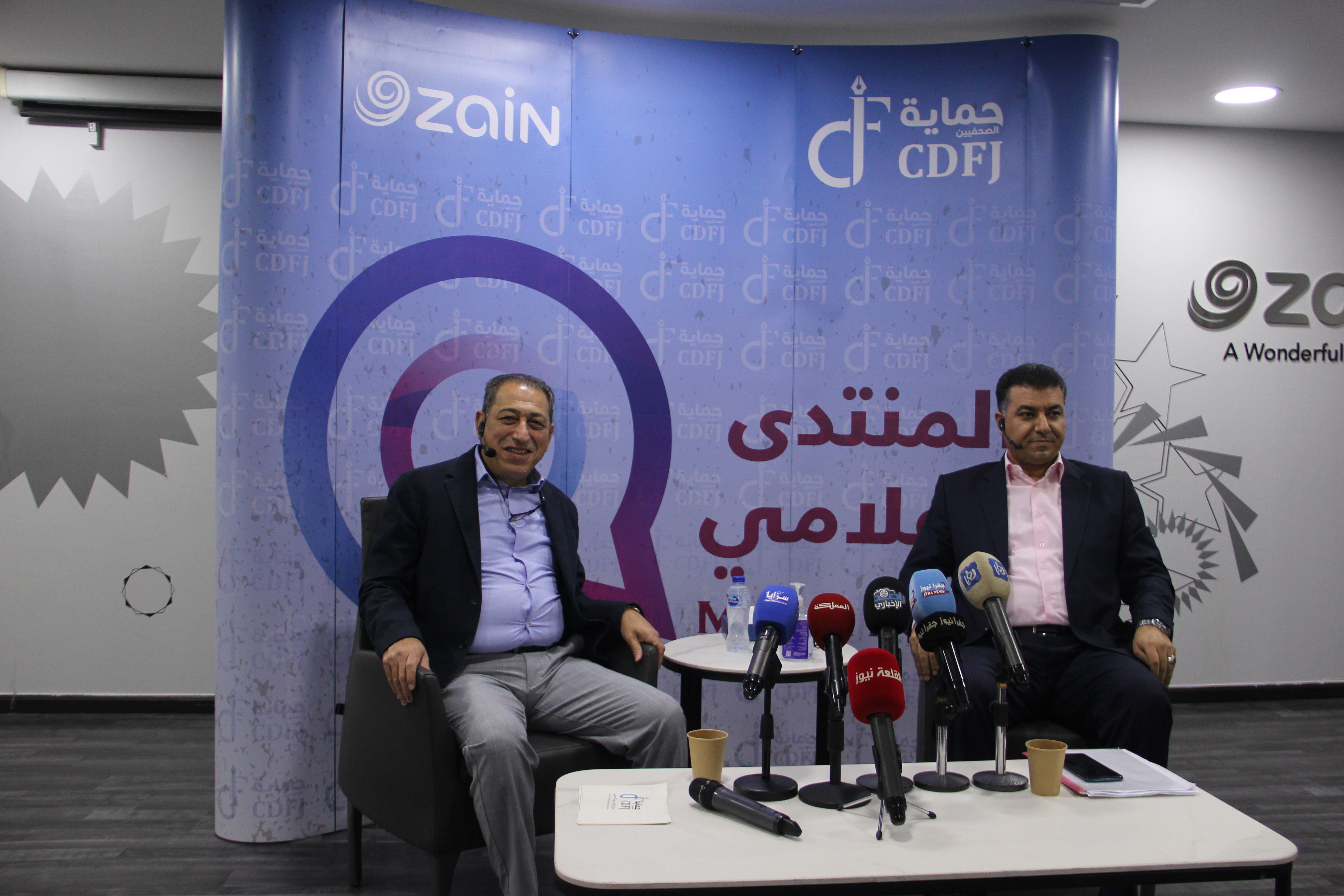
Minister of Agriculture in CDFJ’s Media Forum
Hunaifat: I call for Jordanians to grow wheat, and our strategic stockpile is sufficient for 15 months
- The Ministry of Agriculture will establish a national seed bank in cooperation with the Hashemite University
- The Ministry of Agriculture will establish 3 factories in the Jordan Valley
The Minister of Agriculture, Khalid Hunaifat, revealed that wheat cultivation in Jordan needs about 1 billion cubic meters of water, to be self-sufficient, stressing that Jordan’s stock of wheat is sufficient for 15 months.
During the media forum that was organized by Center for the Defending Freedom of Journalists (CDFJ) in cooperation with Zain Company, Hunaifat called on citizens to grow wheat in any possible available spot, commenting that the ministry would buy a ton of wheat from citizens at a price higher than its global price.
The minister denied that studies that talk about the danger of food security in Jordan are accurate, indicating that Jordan’s ranking in food security in 2021 became 49, while it was 64 in 2019.
Hunaifat confirmed that the ministry, in cooperation with the Hashemite University, is working to establish a seed bank to preserve the original seeds, with funding provided by the university at a value of 3 million dinars, adding that the tender will be launched at the end of next September.
He pointed out that the agricultural sector is important and has impact on the economy through its contribution to the domestic product at a rate of 5.5%, and its contribution to the overall economy at a rate ranging from 18% to 20%, in addition to providing job opportunities in the governorates in which the country or any other sector could not be able to provide job opportunities.
Hunaifat acknowledged what was presented by Mr. Nidal Mansour, who moderated the dialogue, that the Ministry of Agriculture did not receive the attention it deserves, or as a sovereign ministry, stressing that His Majesty King Abdullah II constantly directs attention to the agriculture sector, which has recently been reflected in agriculture in general, describing the interest in it as unprecedented.
The minister indicated that the ministry agreed with the Royal Society for the Conservation of Nature and in cooperation with the Potash Company to establish a “cocoon” factory in Jordan, explaining that the cocoon is a new cultivation mechanism that has been proven successful, as it contributes to reducing evaporation and reducing water use.
In addition, he said that the Agricultural Credit Corporation provided about 30 million dinars in interest-free loans, in addition to providing loans that exceeded 200 million dinars for pioneering and agricultural projects in various regions of the Kingdom.
Regarding the Sarhan Basin project, Hunaifat said that so far 15 companies have applied to invest in the Sarhan basins, and 12 of them have been approved.
He also confirmed that the ministry will work to establish 3 factories in the Jordan Valley for juices, a manufacturer of tomato paste, and drying factories, at a cost of 2.5 million dinars.
According to the minister, the National Agricultural Research Center is an incubator for agricultural innovation, as it sponsors pioneering and non-traditional projects, noting that the ministry will launch awards for research and scientific achievements in the agricultural sector, to raise the level of agricultural production, and to compete globally.
Hunaifat added that the ministry intends to establish forest with an area of 4,000 dunums in the areas of Qatraneh, Wadi Al-Abyad, and Onaizah in Ma’an Governorate, when water sources are provided for them from water harvesting, in addition to using wells that contain non-potable water suitable for agriculture.
The minister explained that Jordan has about 30% self-sufficiency in meat, as imports were opened from about 12 exporters, stressing that the ministry does not sell meat or poultry, but is working to facilitate the flow of goods, maintain their quality, and at an appropriate price for the consumer.
